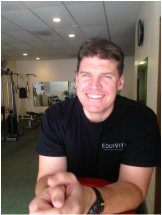
For a few years there has been an increasing amount of support for the idea of increased protein consumption directly around resistance training exercise. Manufacturers have designed supplements specific for ingesting pre, post and even during exercise. The idea behind this push is that during resistance exercise you can cause muscular damage that will then need to be rebuilt stronger. And that there is an "anabolic window" for the ideal rebuilding which is right around the time of muscular damage.
Intuitively, this story makes sense. If you need building blocks to make the muscles stronger then having those blocks readily available should make the building easier. This story connects because it is believable.
If, however, you start to look deeper into the story you might begin to question its believability. During an activity where you are breaking down the muscle - which is another great story that we will save for another time and suffice to say that it doesn't happen nearly as often as presumed - you are not building. The rebuilding happens at rest, not during exercise.
So, why would so many studies indicate that post-exercise protein is so important? Aside from the obvious benefit to supplement companies and the psychological benefit to the individual, the answer may be found in the article, "The effect of protein timing on muscle strength and hypertrophy: a meta-analysis" (Schoenfeld et al. Journal of the International Society of Sports Nutrition 2013, 10:53).
Through analyzing the data from protein ingestion studies, Schoenfeld concludes that "Any positive effects noted in timing studies were found to be due to an increased protein intake rather than the temporal aspects of consumption...". Total amount of protein ingested being the determining factor as opposed to when that protein was consumed.
So, how much protein should one eat? According to the literature, those consuming twice of the standard recommendation for sedentary people saw the greatest benefit. This puts the protein intake around 1.6g/kg bodyweight. Of course, if I were trying to tell a good story I would let you believe that all you need to do is increase your protein intake and your muscles would grow burn more calories and shed any unwanted body fat. I think you know that it is just not that easy.
As with any supplement or nutrient, your body will only realize a difference if it has an unfulfilled need. Consuming more protein will only make a difference if you are creating a demand in your body for those building blocks. Without the activity to create the need, that increased protein will just be used by the body as increased calories which could go to increased stored calories as fat.
Balancing your macronutrients (FAT, CHO and PRO) to ensure you are getting enough but not too much can be tricky and, no doubt, there will be continual research that will disprove things that we currently believe, but if you listen to your body you can find the balance that is right for you. Research and normative data are best used as guidelines and should always be treated with a healthy dose of skepticism.
As always, let me know how I can help.
Adam

 RSS Feed
RSS Feed
